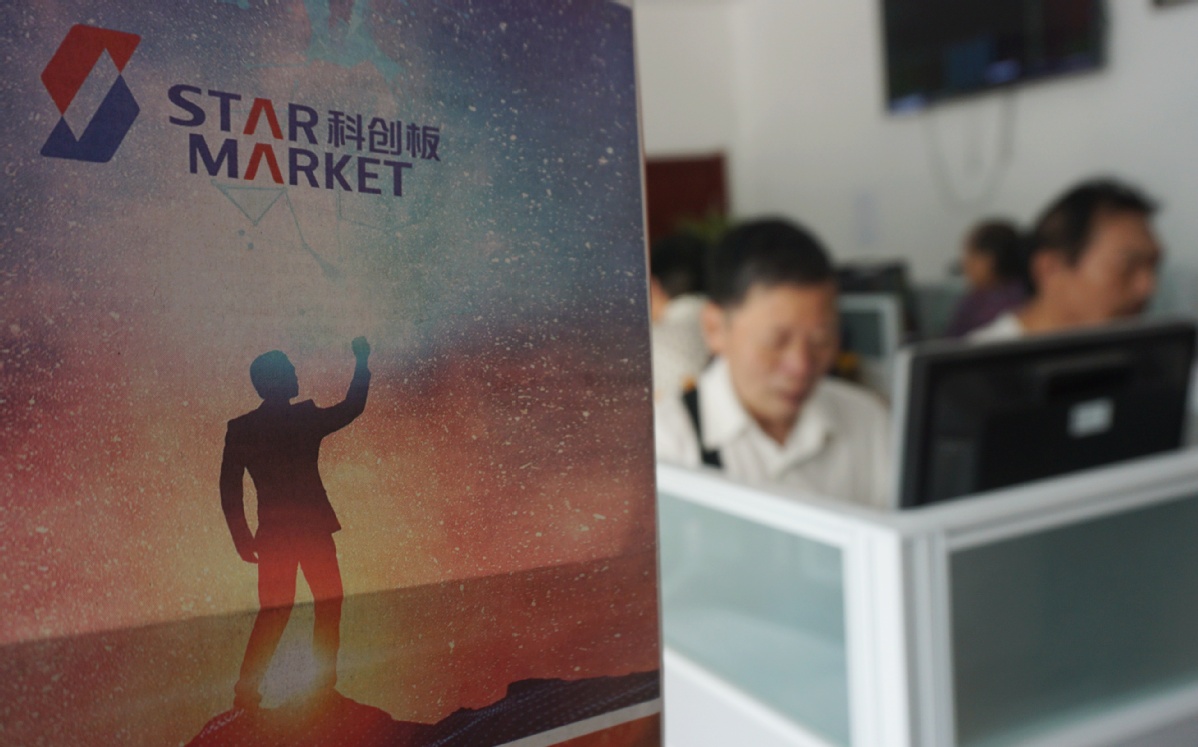STAR Market hoping to pick up steam this year


Tech-heavy board to adopt stricter supervision and more innovation measures to help attract listings of big-ticket firms
The technology-heavy STAR Market board will likely see more reforms in order to truly grow into the top listing platform for companies and a key part of the country's capital market reform, said experts.
Xie Dong, a member of the 13th Chinese People's Political Consultative Conference National Committee and head of the Shanghai Municipal Financial Regulatory Bureau, said the market has been proven to be a reliable test of China's deepened capital market reforms ever since the first companies started trading on the board last summer. But key reforms should be carried out unswervingly to make the board more competitive globally, Xie said.
"Rules for preferred stocks and variable interest entities should be further specified so that companies can have stable expectations of market performance once listed," she added.
In addition, a STAR Market index should be introduced as soon as possible, she said, adding that hopefully the proposed STAR Market index can be included into major global indexes such as the MSCI index, which will translate into overseas capital inflows into the technology-heavy board over the long run.
The STAR Market, together with the registration-based IPO system first tried out on the board, was initiated in 2018 to streamline China's capital market infrastructure. Under the registration-based IPO mechanism, companies' IPO materials are reviewed by the Shanghai Stock Exchange while their stocks are registered with the China Securities Regulatory Commission.
Zhu Jiandi, a deputy to the 13th National People's Congress and chairman of BDO China Shu Lun Pan Certified Public Accounts LLP, recommended the introduction of a detailed management regulation overseeing the registration mechanism, which would allow the responsibilities of the Shanghai bourse and the CSRC to be more clearly defined and IPOs to proceed more efficiently.
Given the recently disclosed accounting scandals of some offshore-listed Chinese companies, Zhu said that the supervisory mechanism of the STAR Market should be further improved so that companies will be more aware of the high costs of unlawful acts.
In this sense, the delisting process will also be improved, which will result in more delisting cases, he said. Meanwhile, a credit track record should be kept for intermediary institutions such as sponsors, accounting firms and law firms to create a better overall business environment, Zhu added.
Wang Jianjun, another deputy to the 13th NPC and chairman of the Shenzhen Stock Exchange, said: "Strict supervision of-and punishment for-fraudulent practices are crucial to the registration-based IPO mechanism to ensure that reforms in Chinese capital markets are carried out smoothly."
The first 25 companies started trading on the Nasdaq-style board on July 29. Currently, there are 105 companies listed on the board. Annual reports showed that these companies realized combined revenue of 147.12 billion yuan ($20.6 billion) in their first year on the board, up 14 percent year-on-year, according to the Shanghai Stock Exchange.
Unlike other boards covering the A-share market, the 44-percent share price fluctuation limit has been eliminated for STAR Market listed companies on their first day of trading. There is no price fluctuation limit set for companies listed on the board for the first five trading days. After that, the daily share price change limit is set at 20 percent, while companies listed on other boards in China will face trading halts if share prices move up or down 10 percent in a single trading day.
Given the relatively higher volatility and uncertainty of STAR Market-listed companies, He Qiang, a member of the 13th CPPCC National Committee and professor at Central University of Finance and Economics, suggested the introduction of T+0 settlement. Market liquidity and pricing efficiency will be largely enhanced in this way, he said.
CSRC Chairman Yi Huiman said in February last year that one of the major purposes of launching the STAR Market is to build closer ties between the capital market and the real economy. In this sense, the board should attract more companies with core technologies, industry-leading positions and positive outlooks.
Among the current 105 STAR Market-listed companies, 24 are computer and communication equipment makers, 22 are special equipment manufacturers, 19 are software and information technology service providers and 14 are pharmaceutical companies.




































